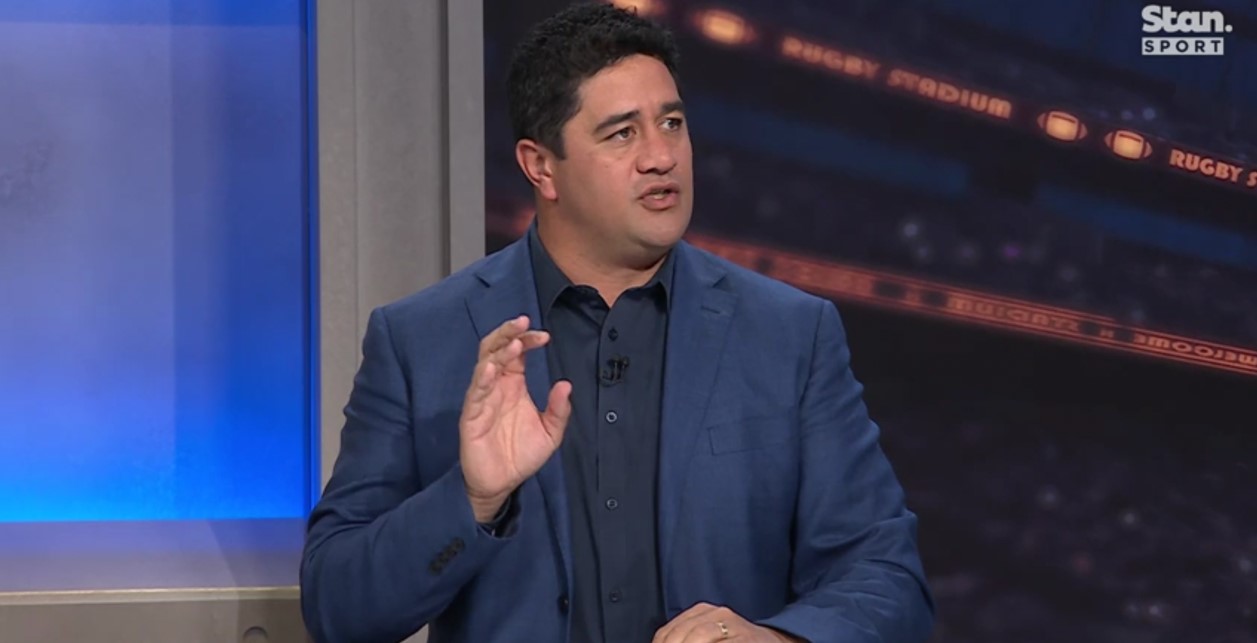Former Wallabies Morgan Turinui and Justin Harrison have rubbished the idea of holding a men's Rugby World Cup every two years instead of four.
In an interview with The Telegraph, World Rugby chief executive Alan Gilpin revealed that a biennial tournament was being considered, as football also ponders the same money spinning concept.
But speaking on Stan Sport's Rugby Heaven, Turinui questioned why.
Stan Sport is the only place to watch every match of The Rugby Championship, continuing this Saturday with All Blacks vs Argentina and Wallabies vs South Africa – live, extended and ad free. Start your seven day free trial here!
"I don't think anyone wants it. We have a World Cup every two years," Turinui said.
"We have a women's World Cup planned two years in between the Rugby World Cup cycle, that'll get bigger and bigger, that's enough.
"You work so hard to win a World Cup, surely you get to rest on your laurels for four years."
READ MORE: Quade's star return creates welcome selection headache
READ MORE: Cooper's thank you message as Aussie citizenship looms
READ MORE: Quade's emotional Sonny Bill tribute on live TV
Harrison, the chief executive of Australia's rugby players association, was even blunter.
"I'm going to quote one of my favourite movies," Harrison said.
"Tell 'em they are dreaming."
Glipin outlined World Rugby's position in his chat with The Telegraph.
"Biennial World Cups have been considered before and they're definitely something that we will continue to consider" Gilpin said.
"It's an interesting concept, especially when you think about the global development of the women's game, too.

"But the men's calendar is very congested and complex, with a lot of different stakeholders, and we have to make sure we engage with them all before we consider a World Cup every two years."
Gilpin also spoke about the divisive issue of officiating and punishing foul play.
"We want to use sanctions – yellow and red cards – to drive behaviours to make the game safer and more entertaining," Gilpin said.

"Yes we are seeing more red cards, but we are also seeing a change in tackle behaviour, which is what we're trying to drive.
"Players don't go out by and large to damage each other.
"But what we want is for players and coaches to take recklessness out of it, too.

"Although there have been a lot of red cards, we have seen that behavioural change.
"That should now mean that we see red cards going the other way as the players adapt to the new laws.
"Again, we will see how the red card replacement affects that.
"There has been lots of discussion around orange cards, too – maybe a 20 minute card while keeping red and yellow."




Leave a Reply
You must be logged in to post a comment.